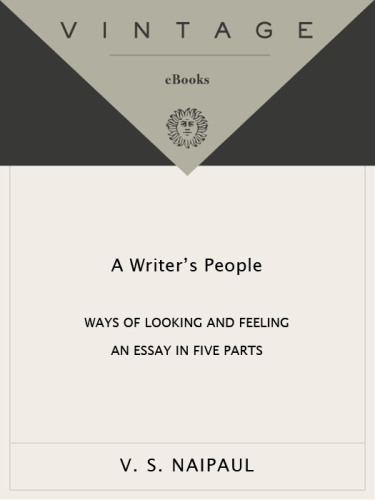
A Writer's People
کتاب های مرتبط
- اطلاعات
- نقد و بررسی
- دیدگاه کاربران
نقد و بررسی

March 31, 2008
The fascinating but not fully satisfying new book by Nobel prize-winner Naipaul is a curious collection. These five nonfiction pieces have no thematic through-line or argument, wandering instead through pockets of memoir, literary criticism, history and gossip. Naipaul is well-versed for this type of journey, as his past forays into fiction, travel writing and autobiography have proven, and his ability to thoroughly engage with both the stylistic flaws of Flaubert’s novel Salammbô
and an early biography of Gandhi within the space of a few pages is both illuminating and impressive. One of the loose organizing themes of the book is Naipaul’s relationships with other writers and books, a subject on which he expounds fully and often with more than a touch of spite. In “An English Way of Looking,” on the British writer Anthony Powell, a good friend during Naipaul’s early years in London, Naipaul criticizes Powell’s writing unrelentingly, then paints extraordinarily unflattering portraits of Auberon Waugh and Phillip Larkin as punishment for their criticism of Powell. Nonetheless, Naipaul’s latest offers an honest portrait of a major international writer’s perspective from late in life.

April 1, 2008
Nobel laureate Naipaul is constructing a pathway of autobiographical and critical essays to connect the great houses of his novels. In his latest collection, he portrays his literary mentors. And as always with prickly, discerning, and uncompromising Naipaul, the discussions are stern in their testimony to the wounds of imperialism and prejudice, and tart with disdain for hypocrisy and artistic cowardice. Returning to his boyhood in Trinidad, he ponders with renewed sympathy and regret his fathers predicament as an unappreciated writer in a tiny, insular Indian community in a small place bereft of a literary tradition. In describing his own trial by fire as an aspiring writer in England in the 1950s, he tells the discomfiting story of his friendship with Anthony Powell, admits to being baffled by the big British novels of the day, and asks if a specific cultural background is necessary for understanding literature, or if a writers mission is to dig deeper into the human experience in pursuit of universal and timeless concerns. In the most trenchant sections in this altogether piquant, magisterial, and maddening volume, Naipaul wrestles with the paradoxes of India. Naipaul is exacting, even excoriating, because he cares so very deeply about literature and the world.(Reprinted with permission of Booklist, copyright 2008, American Library Association.)

























دیدگاه کاربران